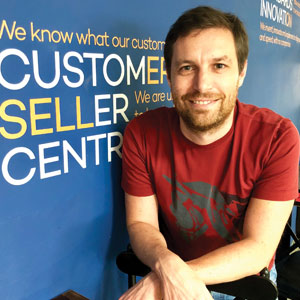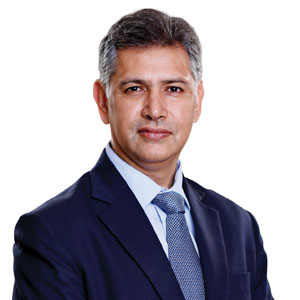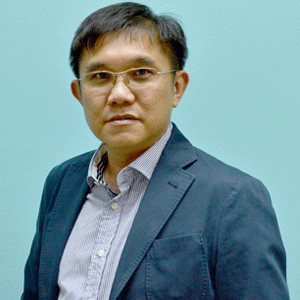THANK YOU FOR SUBSCRIBING

Knowledge Management is a Vehicle for Digital Transformation
Janne Lautanala, Senior Director, Digital, Growth Markets, Avanade


Janne Lautanala, Senior Director, Digital, Growth Markets, Avanade
According to Gartner & APQC, despite modest successes, knowledge management (KM) has not delivered fully on the promise of the learning organization. Many organizations are lacking the basic building blocks in KM. It is an increasing trend that, given the new bigger trends of the ‘liquid workforce’, KM is getting back the importance it deserves.
I am seeing an increasing interest in Asia for KM initiatives. Especially in the high tech industry, companies have understood that retaining workforce, fostering innovation and essentially staying ahead of competition requires effective KM.
So how should you move forward?
According to APQC, five Key Basic Steps to Accelerate knowledge Management Maturity are:
• Document your KM strategy and roadmap
• Charter a cross-functional steering committee
• Create knowledge maps to identify gaps and needs
• Devise a change management strategy and communication plan
• Measure, benchmark and analyze your KM efforts
There are an increasing amount of tools and benchmarks available on how to make the acceleration happen.
Most of the leading organizations are utilizing commercial tools, leveraging their constantly improving features and having a single centralized solution across the enterprise in order to drive the benefits. In addition, there are a few interesting trends that are shaping KM.
The relatively recent and rapid proliferation of smart machine development suggests another route to achieving the elusive KM goal of moving toward a learning organization.
Knowledge Managed Drives Value for Field Service
Field service organizations aim to improve efficiency, meet service levels and reduce the cost to serve customers. In order to do that, the organizations are executing operational diagnostics and analytics, organization and process refinement as well as systems deployment and integration to support the field service.
Here are some of the best practices for field service that are essential for successful field service solution:
• Work from the same page- Establish a clear, open view about the status of the strategy at the beginning of the process.
• User at the center- To achieve results, it is essential that the end users and their needs are properly analyzed and considered.
• Manage the Top 5 critical decisions- Balance vision and pragmatism. Focus time and energy on areas that will make a difference. And, understand the risks and trade-offs associated with high impact change.
• Leverage technology- Collaboration and analytics technologies are developing at an accelerating speed. Take advantage of the technology and plan with the need for continuous improvement in mind.
• Communication- A new solution can create positive morale and market enthusiasm. It can also create uncertainty with employees and customers. Identify every interested constituency, and deliver tailored, relevant communications to each group.
• You get what you measure-To achieve success, it is essential that the KPIs are clearly defined and they are actively used.
New Technologies help Knowledge Management
Although, still relatively immature and requiring much manual fine-tuning with domain as well as technical expertise, the ‘body of knowledge’ that powers smart machine movers, sages and doers is extracted automatically by analyzing, classifying, labeling and correlating volumes of structured and unstructured data, including free-form text. The medical diagnostic or financial advisory power of a smart machine sage is largely due to its ability to create its ‘knowledge base’ by ingesting automatically relevant structured and unstructured data, as well as free-form text.
Data science techniques are being used to achieve KM objectives (even though KM is rarely, if ever, mentioned explicitly). For example, one context where traditional KM approaches are used often is in IT service support. In the context of IT service support, there are even specialist methodologies, such as Knowledge-Centred Support (KCS). These methodologies rely on support agents contributing explicitly to knowledge bases or interacting with each other in a way in which the result of their interactions (for example, a Q&A session) also contributes to a knowledge base about IT support. To achieve the same goal—that is, IT service support—it is possible to use data science techniques to build the knowledge base automatically by ingesting large volumes of existing relevant data, including previous agent interactions.
"Knowledge Management is getting back the importance it deserves"
Lately, there has been growing interest in augmented and virtual reality on how companies might take advantage of it in KM.
Service engineers, wearing a special headset, for example, could be dispatched to a job where they could see the instructions or information about the product directly overlaid on it. There would be no fumbling for a laptop or tablet; the information they need would be accessible with a flick of their head. With such detailed information available, this could even mean that field service companies could dispatch less skilled technicians into the field, while the more experienced engineers could stay at the main headquarters supervising and troubleshooting more difficult issues.
Digital transformation is described as the total and overall societal effect of digitalization. There will be stronger opportunities to transform and change existing business models, socio-economic structures, legal and policy measures, organizational patterns, cultural barriers, etc. When planning for digital transformation, organizations must factor the cultural changes they'll confront as workers and organizational leaders adjust to adopting and relying on unfamiliar technologies. Properly organized knowledge management can greatly help organizations to accelerate the change needed in the organizations.
Avanade is the leading provider of innovative digital and cloud-enabling services, business solutions and design-led experiences, delivered through the power of people and the Microsoft ecosystem. Majority owned by Accenture, Avanade was founded in 2000.
Check This Out:- Top Knowledge Management Solution CompaniesWeekly Brief
I agree We use cookies on this website to enhance your user experience. By clicking any link on this page you are giving your consent for us to set cookies. More info
Read Also
Advancing Retail through E-Commerce, Cloud and Cyber security
From Code To Impact: Leading Enterprise Ai With Purpose
Reimagining Pension Services Through Responsible Innovation
Maritime: Beyond Systems, Beyond Seas
Human-Centered Innovation in the GenAI Era
The Art and Science of Selling
Responsible Data Leadership in an AI-Driven World
Driving Guest-Centric IT Innovation in Integrated Resorts





















